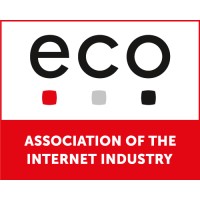Digital Resilience as a Location Factor – Europe Needs Real Freedom of Choice in the Cloud
Digital resilience is key to Europe’s future. True cloud sovereignty – built on diverse, open infrastructure – ensures freedom of choice, innovation, inclusion, and diversity, as reported by Shipra Kren of eco.

@eco EuroCloud
In the context of “New Work & Diversity,” digital infrastructure plays an often underestimated but critical role. Flexible work models, inclusive innovation, and diverse ecosystems rely on open, resilient, and secure digital environments. True digital sovereignty enables not just technological independence, but also organizational freedom, equitable participation, and innovation across sectors and society.
What does resilience mean in an increasingly digitalized world? The answer extends far beyond mere technical reliability. Digital resilience means maintaining the ability to act permanently – economically, socially, and politically. It describes the ability not only to protect systems against external shocks, but also to design them in such a way that they are geared toward long-term stability, innovation, and strategic independence.
In Europe, this question is increasingly being negotiated in the context of digital infrastructure. The debate surrounding the “Sovereign Cloud” reflects a deeper paradigm shift: away from a discussion of costs and scale, toward the question of how we want to shape our digital future in a value-based and independent manner.
Hyperscalers, dependencies, and the European claim
Cloud technologies are rightly considered the backbone of the digital economy. Applications in industry, healthcare, public administration, and research would be hardly conceivable without them.
When we talk about resilience, it is not about European-style protectionism, but rather about the right to freedom of choice. European stakeholders must be able to sovereignly decide how and on which digital infrastructures they operate their workloads. This includes equal access to international hyperscalers as well as the use of interoperable, federated alternatives according to international standards.
Resilience through diversity: Freedom of choice is not a luxury
Sovereignty in this context does not mean exclusion, but rather the power to shape the future. Projects such as Gaia-X and the European 8ra funding initiative (IPCEI–CIS) show that a resilient cloud ecosystem emerges through diversity – just as a company becomes more robust by relying on different perspectives, experiences, skills, and diversity. Federated architectures, open interfaces, and open-source-based services can be important building blocks – also in interaction with international providers.
The Sovereign Cloud 2024 study also shows how relevant this topic is for companies: 26% of companies are already using a sovereign cloud, while 36% are in the planning phase – a clear signal of the growing need for digital sovereignty and resilience.
What Europe lacks is not technology, but strategic coordination and market-effective implementation. Both are all the more important given that Europe is fragmented into many nation states. Small and medium-sized providers, industry-specific solutions, and sectoral platforms too often remain stuck in pilot projects. At the same time, there is a frequent lack of binding standards, certifications, and regulatory clarity that build trust and create investment security. Last but not least, regional providers often lack market visibility.
The challenge extends beyond technical infrastructure to organizational culture and talent management. Just as New Work environments require flexible, collaborative approaches that embrace diverse working styles and distributed teams, Europe’s digital transformation demands inclusive governance models that can harness the collective intelligence of varied stakeholders – from startups to established enterprises, from different cultural backgrounds and business approaches.
Insights from practice: EuroCloud’s role in the digital Europe
EuroCloud Germany is actively involved in this field of tension – as a professional association, platform provider, and a pulse generator. At the Executive Roundtable “Cloud and Europe’s Digital Resilience,” it became clear that the cloud issue has long become a question of strategic infrastructure. It is no longer about the “whether,” but about the “how”: How do we ensure innovation and compliance? How do we guarantee competition and freedom of choice? How do we anchor European values such as transparency, the rule of law, and data protection in global technologies? And how do we especially help smaller providers to gain greater visibility?
EuroCloud advocates for a pragmatic, multidimensional model:
- Freedom of choice as the foundation for open market access
- Diversity and openness as drivers of innovation and resilience
- Collaboration as the key to sustainable success
This model relies on trust through governance – not control. It enables hybrid architectures in which European providers, open-source technologies, and hyperscalers are not in contradiction, but functionally complement each other.
Digital resilience needs a European regulatory framework
If Europe does not want to leave digital resilience to chance, it needs more than political mission statements – it needs a robust strategy that integrates infrastructures, markets, and values. In the coming years, cloud architectures will play a decisive role in determining how sovereign, innovative, and competitive Europe remains.
Digital resilience is therefore not only a technological imperative, but also a question of Europe’s position as a business location – one that we must answer now. In an era where New Work principles emphasize the importance of psychological safety, inclusive decision-making, and diverse collaboration, Europe’s approach to digital sovereignty must reflect these same values. The future of European competitiveness depends not only on technological choices, but also on building digital ecosystems that reflect the diversity, flexibility, and collaborative spirit shaping modern workplaces and driving innovation in the 21st century.
📚 Citation:
Kren, Shipra. (August 2025). Digital Resilience as a Location Factor – Europe Needs Real Freedom of Choice in the Cloud. dotmagazine. https://www.dotmagazine.online/issues/new-work-and-diversity/europe-needs-freedom-of-choice-in-the-cloud
Shipra Kren is a trained IT journalist with many years of experience in both print and online media. Since 2024, she has been part of the eco Association’s PR team.
FAQ
What does digital resilience mean in the European context?
Digital resilience in Europe refers to the ability of digital infrastructure to remain functional, secure, and independent—economically, socially, and politically—even during disruptions. It goes beyond technical uptime to include strategic autonomy and long-term sustainability.
Why is freedom of choice critical for cloud sovereignty?
According to Shipra Kren, Senior PR Editor at eco – Association of the Internet Industry, freedom of choice is essential to cloud sovereignty because it enables European organizations to choose providers aligned with their compliance, innovation, and trust goals. Rather than enforcing protectionism, true sovereignty means having the flexibility to select international or federated models that reflect European values.
How can federated and open-source cloud models support digital resilience?
They reduce single-provider dependency
Enable interoperability and flexibility
Reflect European values like openness, transparency, and collaboration
These models also strengthen SMEs and local providers while maintaining global compatibility.
What are the biggest barriers to achieving digital sovereignty in Europe?
Fragmentation, lack of harmonized standards, and limited visibility for smaller providers hinder progress. There’s also a need for more coordinated investment, certifications, and cross-border governance frameworks.
Why is digital resilience important for New Work and inclusive innovation?
Just like flexible work models thrive on inclusion and trust, digital ecosystems must reflect diversity and resilience. Sovereign cloud models allow organizations to align technology with inclusive, adaptive, and values-based collaboration principles.
How does EuroCloud Germany support Europe’s digital resilience goals?
EuroCloud Germany and eco – Association of the Internet Industry support Europe’s digital resilience by promoting federated cloud architectures, open standards, and hybrid infrastructures. They advocate for practical governance and trust models that help both large and small providers operate securely and transparently within Europe’s digital ecosystem.
What actionable steps can policymakers take to strengthen Europe's digital sovereignty?
Promote interoperable standards and certifications
Fund regional cloud projects with EU-level coordination
Support SME visibility and inclusion in public tenders
Align regulations with real-world innovation needs
These steps can bridge the gap between vision and implementation.





